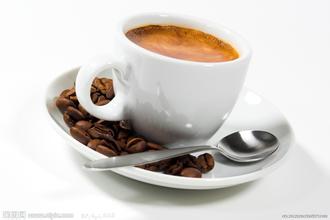French Coffee and Chinese Tea Foreign Culture meets Tea

France is located in the western part of the European continent and the largest country in Western Europe. China ranks in the middle of Asia and the largest country in Asia. One is a transit station for cultural exchanges in the world, and the other is an ancient cultural country with a history of 5,000 years. The two bright pearls in Eurasia and Asia minor influence the process of civilization in the world, promote the communication of information culture between the West and the East, and promote the continuation of human history.
To be precise, cultural exchange and promotion, from a humanistic point of view, pursue not only historical issues, but also economic, political and cultural fields. What is derived from these fields is some very subtle links, such as French coffee and Chinese tea, which drive the exchange of food culture, and the cultural exchange from ancient times to the present is inseparable from diet. As a part of human ancient civilization, it broke through regional restrictions and language barriers, so that China and France found a breakthrough and shortcut for cultural exchanges.
Coffee and tea can become a part of cultural exchanges, symbolizing not only the taste of drinks, but also an important bridge to communicate the friendly relations between the two peoples. Just like the ancient Silk Road and the modern Eurasian Continental Bridge, it pushed China to the world and brought the world close to China.
Coffee and tea play such a seemingly insignificant role, but in fact they are a pair of inexhaustible roles, just like Hua Dan and Xiaosheng of Beijing Opera. Can you imagine watching Beijing Opera without them?
Coffee has a long history, and coffee from all over the world has its own characteristics, such as the picking of the first coffee bean, the first roasting test, the first grinding, the first blending and the mellow aroma of the first cup of hot coffee. Coffee culture has become one of the greatest and most romantic stories in human history. The French are already one of the most romantic peoples in the world, so naturally, they can't drink coffee without the word romantic. The French do not drink coffee, they are not drinking, but in tasting, the meaning of tasting words is too much, tasting the taste of coffee, tasting the uniqueness of coffee. In the final analysis, what the French pursue is the mood, mood and environment of coffee, which is somewhat similar to that of Chinese people drinking tea. French people can read newspapers all day for a cup of coffee and think about it with friends all day, which is the charm of a cup of coffee, while Chinese people can take three or five sips of tea between small bridge and flowing water and talk for three or five hours without feeling irritable and disgusted. French people develop this habit of drinking coffee, it is not forced out, it expresses a kind of elegant charm, a kind of romantic sentiment, a kind of freehand feeling of enjoying life, paying attention to taste, enjoying life is a kind of life culture for romantic French people.
People who have visited France may find that in front of restaurants and hotels in the streets, there are several open-air cafes for people to rest and colorful shade umbrellas, decorating the streets of France into a pastime full of national characteristics. By the side of the busy street, order a pleasant cup of Sicilian coffee, slowly look at the bustling crowd, romantic and open French flavor, mixed with the unique bitterness of coffee, taste this unique food culture, occasionally run into the famous Paris beauty, is also a great joy of life!
There is an inextricable relationship between French coffee and its own cultural heritage. It is conceivable that in the French literary world of the 18th century Renaissance, great poets like Balzac and Hugo drank a cup of hot coffee that had been brewing for a long time in one hand. Coffee runs through different art genres. Van Gogh, a painter, once lived in the attic of a French cafe, and his paintings included a "Cafe at Night". He was so affectionate about the cafe that he wrote in a letter: "I hope to hold a personal exhibition of my paintings in this cafe one day. Balzac wrote for the crazy coffee:" sweeter than a thousand kisses, more intoxicating than vintage wine, as long as I have coffee company, I will be willing not to marry for the rest of my life! "
Tea is the national drink of the Chinese nation. It originated from Shennong, smelled in the Duke of Lu Zhou, flourished in the Tang Dynasty and flourished in the Song Dynasty. Now it has become one of the three non-alcoholic beverages (tea, coffee and cocoa) that are popular in the world, and will become the beverage king in the 21st century. Tea hobbies spread all over the world. Tea has been grown in more than 50 countries all over the world. As well as tea drinking methods, cultivation techniques, processing techniques, tea rituals and customs, are all spread directly or indirectly from China. China is the birthplace of tea and is known as "the motherland of tea". Tea is the pride of the Chinese nation! China has a history of five thousand years, and the Chinese people have a history of drinking tea for five thousand years. Like the French who like to drink coffee, Chinese people have a feeling of never giving up on tea.
French people pay attention to artistic conception and sentiment when drinking coffee, while what Chinese people pursue when drinking tea is tea ceremony.
Only the tea ceremony can be sublimated into "Tao" in Chinese eating and playing activities. Chinese people drink tea just like the national characteristics of Chinese people are advocating nature, simplicity and modesty, not emphasizing form. According to personal tastes and hobbies, drink as much as you like. There are many forms of drinking tea, tea as a drink to quench thirst, a large bowl of sea drink, called "drinking tea". If you pay attention to the color and smell of tea, pay attention to the water quality of tea sets, and can carefully taste it when drinking, it can be called "tasting tea". If you pay attention to the environment, atmosphere, music, brewing skills and interpersonal relationships, it can be called "tea art". And in the tea activities to integrate philosophy, ethics and morality, through drinking tea to cultivate self-cultivation, cultivate sentiment, taste life, Zen enlightenment, to achieve spiritual enjoyment and personality bath snow, which is the highest realm of tea drinking in the world-tea ceremony.
Compared with French coffee, the Chinese tea ceremony is less romantic, but adds the charm of nature. With Yichang, the true meaning of the Chinese tea ceremony is: harmony, tranquility, happiness, and truth.
Persistence in the love of tea and coffee between China and France is not at all excessive and far-fetched. Formally, with the input and persistence of this emotion, China and France have a mode of communication, a non-zone way, and a "language" that is easier for the two countries to master than language. communication is so simple and direct. Modern history has proved that the exchanges between China and France are getting closer and closer, which is not limited to economy, politics and religion. The coffee and tea we drink can also become a means and tool for information dissemination and cultural exchange. In China, there are as many coffee drinkers as tea drinkers, and more and more French cafes emerge as the times require. At the same time, more and more French people like Chinese tea.
The cultural exchanges between China and France, the two big countries in Asia and Europe, have a far-reaching impact on cultural exchanges, information dissemination and deepening friendship between China and France, as well as countries around the world.
Important Notice :
前街咖啡 FrontStreet Coffee has moved to new addredd:
FrontStreet Coffee Address: 315,Donghua East Road,GuangZhou
Tel:020 38364473
- Prev

Can coffee and wine be eaten together to death? Basic knowledge of coffee
Coffee is a common food in our daily life, and now scientists have confirmed that eating coffee with the following foods can cause illness in our bodies: eating coffee and alcohol together can kill myocarditis and the theophylline and caffeine contained in strong tea and coffee have a similar effect on the heart, that is, increasing heart rate and myocardial contractility, thus causing an increase in myocardial oxygen consumption. This
- Next

The etiquette and customs of drinking coffee and black tea are different.
When drinking coffee or tea, if you are supplying cube sugar, you should use a special clip (by hand when there is no clip). Instead of using a teaspoon to get cube sugar. When drinking coffee or tea, you should pick up the cup and drink it without making a noise. When drinking, it is best to hold the teacup with a tea tray in one hand to prevent coffee or tea juice from dripping onto the clothes. When drinking, the teaspoon should be placed on the teapot, not in the teacup. You can't take tea.
Related
- Beginners will see the "Coffee pull flower" guide!
- What is the difference between ice blog purified milk and ordinary milk coffee?
- Why is the Philippines the largest producer of crops in Liberia?
- For coffee extraction, should the fine powder be retained?
- How does extracted espresso fill pressed powder? How much strength does it take to press the powder?
- How to make jasmine cold extract coffee? Is the jasmine + latte good?
- Will this little toy really make the coffee taste better? How does Lily Drip affect coffee extraction?
- Will the action of slapping the filter cup also affect coffee extraction?
- What's the difference between powder-to-water ratio and powder-to-liquid ratio?
- What is the Ethiopian local species? What does it have to do with Heirloom native species?

